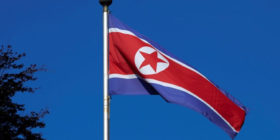The Trump administration is expected to drop Iraq from the list of Muslim-majority nations to be impacted by a travel ban that the president was to sign into effect on Wednesday, but didn’t, along with several other substantive changes from the previous executive order that had been put on hold by a federal court.
The new order is likely to exempt existing visa holders from the listed countries — the state department had said 60,000 people were impacted by the earlier order — which will be down by one to six now: Syria, Iran, Yemen, Sudan, Somalia and Libya.
No reasons were given publicly for the president not issuing the new order on Wednesday, but reports indicated the White House felt the message from the well-received address to US congress might be drowned out or mitigated in the least by the criticism they felt would follow the new order, going by what happened earlier.
Barely after a week in office, President Donald Trump had issued an executive order that banned visa holders from seven Muslim-majority nations from entering the US for 90 days; and all refugees for 120 days, indefinitely for those from Syria.
The order went into effect immediately to worldwide outrage as travellers from these nations were either detained at arrival in the US or were turned away from airports when they came to board their US-bound flights. Scenes of chaos were reported from airports in the US and abroad.
Civic right lawyers and activists swung into action in the US, and challenged the order in court, and obtained a stay in New York. Lawsuits were filed all over the country, and a federal court in Seattle, Washington, issued a countrywide stay soon after. The Trump administration appealed against it, and lost.
The president and his aides said they will not give up and will return with a new order, saying they felt extreme vetting was necessary to keep out “bad dudes”, as Trump has said in multiple tweets and remarks.






Leave a reply